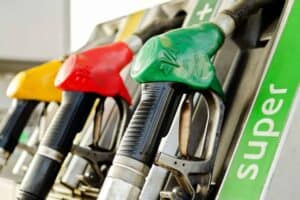‘For the first time, petrol will be over R15 per litre ... the highest level it’s ever been.’

A massive fuel price increase may be on the cards and consumers should tighten their belts as the trickle-down effects of these are sure to dent their wallets.
The Automobile Association of South Africa (AA) announced their most recent prediction yesterday.
Market trends indicate another big jump in the fuel price by the end of the month.
AA spokesperson Layton Beard explained that “last month’s fuel price account was closed earlier by the department of energy, resulting in the postponement of a substantial 50 cent per litre increase, brought on by a weakening rand and rising international oil prices at the end of April”.
“The deferred loss from last month will be included in this month’s adjustment, which is currently looking to be substantial,” said Beard. “South African fuel users are currently facing increases of 74 cents a litre for petrol, 81 cents for diesel, and 78 cents for paraffin.”
According to economist Mike Schussler, it would be quite a steep increase because “for the first time, petrol will be over R15 per litre … it will be the highest level it’s ever been.”
Econometrix economist Jeffrey Dinham said: “Transport makes up a fairly large portion of consumers’ monthly expenditure basket; roughly 8% of a consumer’s monthly spend goes towards public transport or fuel costs for motor vehicles.
“Generally, if fuel prices increase, so does the proportion of expenditure that consumers must allocate towards it, spending more on fuel, or more on public transport, which is entirely dependent on fuel.
“This leaves less income for other areas of spending, for example food, housing, clothes and more.
“This is the direct effect on consumers. For commuters who spend more than 8% of their monthly expenditure on fuel or public transport, the impact of a fuel price increase will naturally be even larger, forcing an even sharper reduction in other areas of expenditure.
“A secondary effect occurs when companies who use fuel for transporting or producing goods need to raise the cost of these produced goods, as a knock-on effect to their own costs and the rising cost of doing business. These higher costs again feed back into overall inflation.”
Support Local Journalism
Add The Citizen as a Preferred Source on Google and follow us on Google News to see more of our trusted reporting in Google News and Top Stories.






